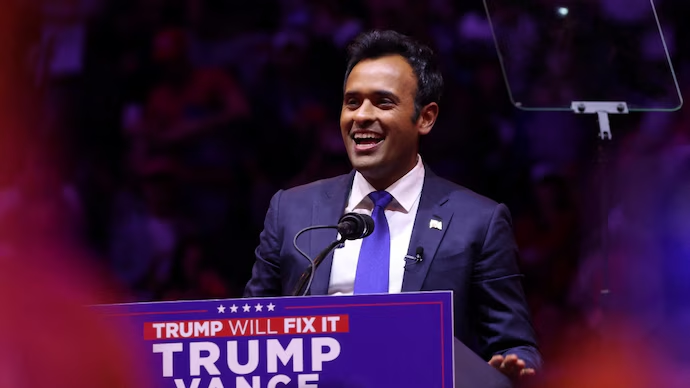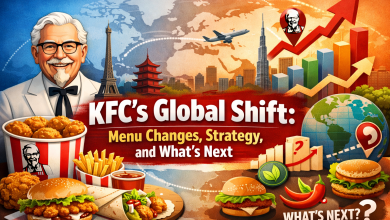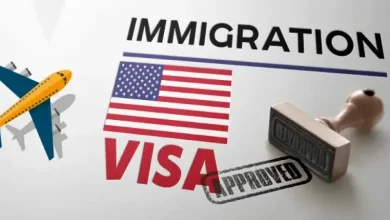MAGA darling a month ago, Vivek Ramaswamy now an American-Indian Trump supporters love to hate

Vivek Ramaswamy, once a MAGA favourite, now faces backlash after a tweet on American parenting ignites fierce debates on culture, immigration, and American values.
In the volatile world of American politics, the tides of admiration can shift dramatically. Vivek Ramaswamy, a biotech entrepreneur and 2024 presidential candidate, has seen this firsthand. Just a month ago, he was a rising star within MAGA circles, celebrated for his alignments with conservative values, his critique of the “woke” culture, and his advocacy for national sovereignty, among other things. But today, he finds himself at the centre of a growing backlash, accused by some of being unpatriotic, divisive, and even complicit in undermining American workers.
The tipping point? A single tweet that sparked a firestorm of debates about parenting, culture, and immigration.
A month ago
Ramaswamy’s ascent in the MAGA universe was swift and, at first glance, unstoppable. As a self-made entrepreneur with a knack for headline-grabbing rhetoric, he seemed to embody the American Dream that Trump supporters revere. His critiques of “woke” culture and Big Tech resonated with a base hungry for intellectual firepower to back their grievances.
Then came his now-infamous tweet, a cultural critique questioning how Americans raise their children. In the tweet, Ramaswamy argued that top tech companies hire foreign-born engineers not due to any inherent IQ deficit among Americans but because of a cultural gap prioritising mediocrity over excellence. He blamed American parenting practices and pop culture for fostering complacency, contrasting this with the disciplined upbringing of immigrant families.
What followed was an explosion of anger from MAGA supporters, many of whom accused him of being ungrateful and elitist. Some even took his remarks as an attack on American identity itself –– a cardinal sin in a movement centred on nationalism.
From favourite to foe
The fallout was swift. Immediately after his tweet, prominent MAGA influencers took to X (formerly Twitter) to denounce Ramaswamy. The comments ranged from critiques of his “anti-American” tone to outright xenophobia, with some questioning his loyalty as an Indian-American. The debate spiralled into a larger cultural clash, with hashtags like #AmericansFirst and #NoH1Bs trending as users debated immigration, the H1-B visa program, and the role of Indian professionals in the US economy.
Ramaswamy’s critics framed his tweet as proof that he aligns more with immigrant interests than with the American working class. Others latched onto his background—a child of Indian immigrants—to argue that he was out of touch with the average American’s struggle. Ironically, this rhetoric came from the same crowd that had championed him as a symbol of the American Dream just weeks earlier.
Indians vs Americans: The latest debate
The controversy has reignited long-simmering tensions between Indian immigrants and native-born Americans, particularly in the Silicon Valley. Critics argue that the influx of highly skilled Indian professionals through visa programmes like H-1B has displaced American workers and driven down wages. Supporters counter that these professionals fill crucial gaps in a hyper-competitive global market, bringing expertise that keeps US innovation alive.
On X, the debate has taken on a life of its own. Indian Americans have rallied to Ramaswamy’s defence, emphasising the sacrifices and discipline that immigrant families embody. They have highlighted the success stories of Indian-origin engineers, doctors, and entrepreneurs who have contributed to America’s global leadership. Meanwhile, the MAGA crowd has doubled down on their critique, accusing Indian immigrants of exploiting American opportunities while undermining their culture.
The broader implications
Ramaswamy’s experience underscores how quickly admiration can turn to animosity when a politician’s message deviates from the script.
His predicament also reveals the precarious balancing act of being an immigrant –– or the child of immigrants –– in American politics. While his rise was fuelled by his ability to speak to American values, his cultural critiques have exploded a fault line within the MAGA movement.
Moving forward
For Ramaswamy, the road ahead is fraught with challenges. He must reconcile his vision of American exceptionalism with a base that feels increasingly alienated by his cultural critiques. His supporters argue that his message—though controversial—is necessary for sparking a much-needed national conversation about meritocracy, parenting, and education. But whether that message resonates with or further alienates MAGA supporters remains to be seen.
In the end, Ramasway’s journey from being a MAGA darling to a divisive figure is a cautionary tale. It highlights the complexities of navigating identity, nationalism, and ideology in today’s polarised America. For a movement that prides itself on loyalty, the question now is whether MAGA can forgive one of its own for speaking a truth it may not want to hear.






